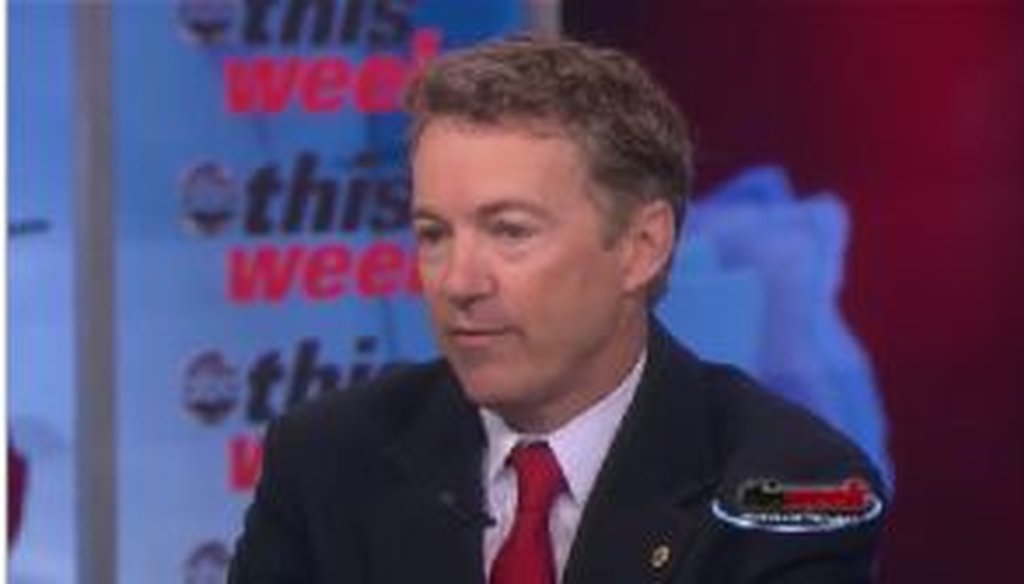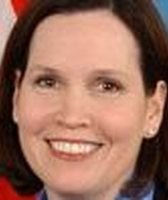Stand up for the facts!
Our only agenda is to publish the truth so you can be an informed participant in democracy.
We need your help.
I would like to contribute

Sen.-elect Rand Paul was a guest on ABC's "This Week."
We"re checking several claims from Sunday's edition of ABC's This Week with Christiane Amanpour. We've published two Truth-O-Meter items and will be publishing one more.
Kentucky's new Senator-elect Rand Paul made a comparison that caught our attention. "The interest on the debt now is going to approach in the next couple of years -- just the interest on the debt -- will approach what we spend in the national defense budget," said Paul, who has made reducing federal spending a rallying cry.
We hadn't heard that comparison before, so we checked it out. And he's pretty close. Defense spending begins at $719 billion for 2010, then rises a bit before declining to $685 billion in 2015. The net interest figure is smaller to start, but it rises more quickly It starts at $188 billion in 2010, but ends up at $571 billion in 2015, which would make it 83 percent of defense spending.
These figures are projections, so they could change depending on what's happening to the economy and other factors. And he would have been more accurate characterize the time frame as five or six years instead of a "couple of years. But Paul is right to point out the coming explosion in net interest payments. So we rated his statement Mostly True.
We were also interested in a debate between former President Ronald Reagan's budget director, David Stockman, and Rep. Mike Pence, the conservative Indiana Republican and the No. 3 Republican in the House leadership. They agreed that spending cuts needed to be made but disagreed over tax increases. After listing major spending cuts that he said need to be made, Stockman said, "And even if we do all that, we still have to raise revenue."
Raising revenue means a tax increase, which Pence said was a bad idea and wouldn't help. "David believes that every tax increase equals a revenue increase, but that's not true. Anybody familiar with the historical data from the IRS knows that raising income tax rates will likely actually reduce federal revenues."
That's what we checked, going to the Internal Revenue Service's detailed tables of tax collections, which show that taxes go up almost every year. They went up after tax increases passed in 1990 and 1993, and, when taxes were cut in 2001, collections dropped.
But we also went beyond the raw data to a 2006 Treasury Department report that examined the revenue effects of major tax law changes since World War two measured as a percentage of Gross Domestic Product to account for economic growth and inflation. Laws that reduced tax rates produced declines in revenue, and laws that increased tax rates produced increases in tax revenue.
We also talked to tax experts who said that, while at some rate a tax increase might reduce revenue, at current rates a tax increase would increase revenue. So we rated Pence's statement False.
Our Sources
See Truth-O-Meter items.








































